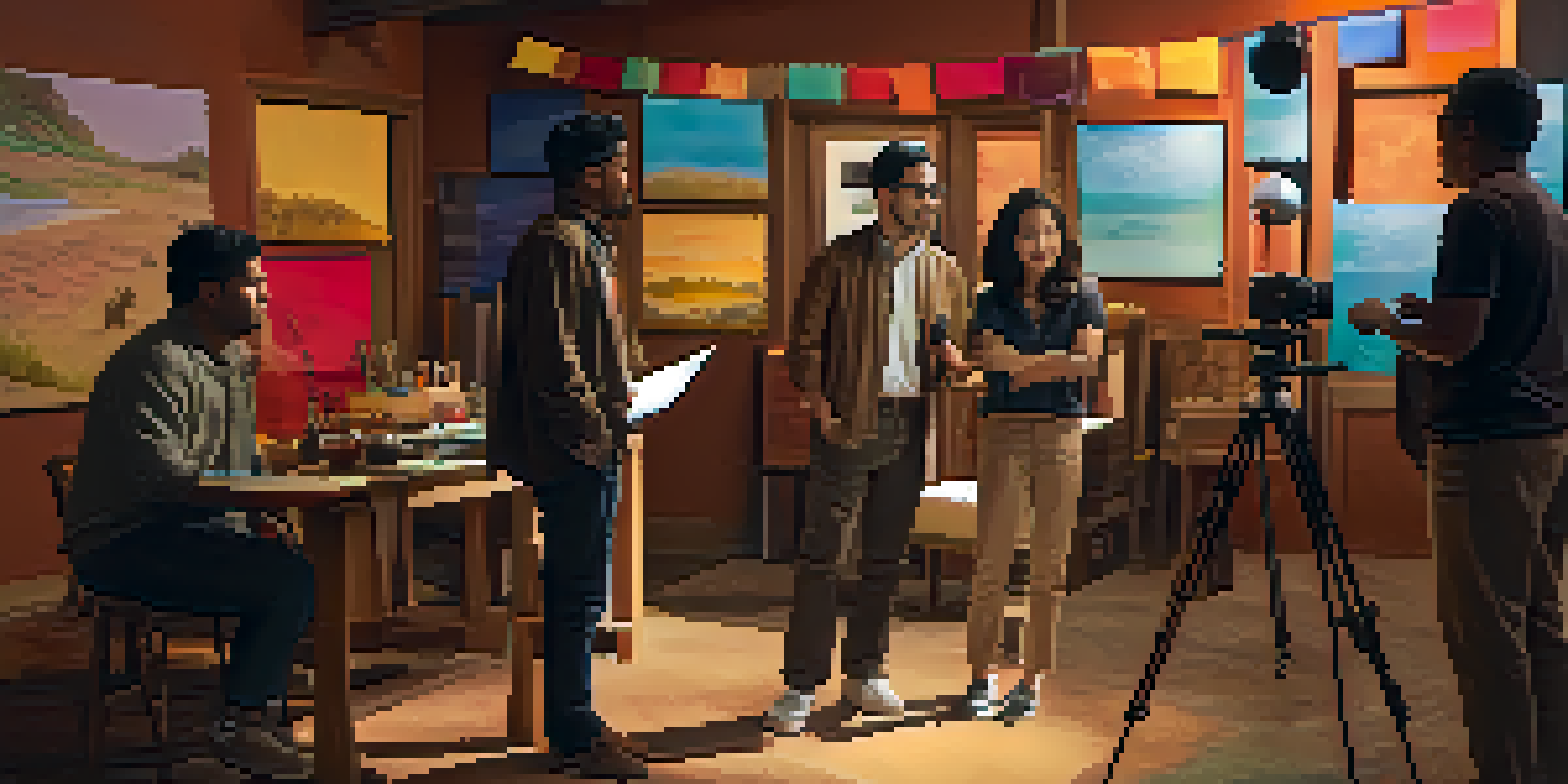Cultural Stereotypes in Hollywood: Breaking Down the Barriers

Understanding Cultural Stereotypes in Film
Cultural stereotypes in Hollywood often simplify complex identities into easily digestible characters. These portrayals can limit the understanding of diverse cultures, reducing them to mere caricatures. For instance, the 'sassy best friend' trope often sidelines deeper narratives, preventing audiences from seeing the full spectrum of a person's experience. By recognizing these patterns, we can begin to challenge and reshape how cultures are depicted onscreen.
The Impact of Stereotypes on Society
Stereotypes in films don't just entertain; they also influence perceptions in the real world. When Hollywood consistently portrays particular groups in a negative light, it reinforces harmful biases among audiences. For example, the repeated depiction of certain ethnicities as criminals can perpetuate fear and discrimination in society. This connection shows the urgent need for more accurate and nuanced representations in film.
Stereotypes Limit Cultural Understanding
Cultural stereotypes in film simplify complex identities, hindering a deeper understanding of diverse experiences.
Notable Films Challenging Stereotypes
Several films have emerged that challenge traditional stereotypes and present more authentic narratives. Movies like 'Black Panther' and 'Crazy Rich Asians' showcase rich cultural tapestries, allowing audiences to engage with diverse stories. These films not only break the mold but also celebrate the complexities of their characters. By doing so, they pave the way for future filmmakers to tell stories that resonate with authenticity.
The Role of Diverse Voices in Filmmaking
Diverse voices behind the camera play a critical role in reshaping Hollywood's narrative landscape. Filmmakers from different backgrounds bring unique perspectives that challenge the status quo. Their contributions can lead to richer storytelling and more accurate portrayals of cultures. By amplifying these voices, the industry can begin to dismantle long-standing stereotypes and foster a more inclusive environment.
Demand for Authentic Representation Grows
Audiences are increasingly seeking films that reflect their diverse backgrounds, pushing studios to prioritize authenticity.
Audience Demand for Authentic Representation
As audiences become more aware of the importance of representation, they are demanding change. Viewers are increasingly seeking films that reflect their diverse experiences and backgrounds. This shift in demand encourages studios to invest in projects that prioritize authenticity over cliché. When audiences speak up, they not only influence what gets made but also inspire a cultural awakening within the industry.
The Influence of Social Media on Stereotypes
Social media has become a powerful tool for challenging cultural stereotypes in Hollywood. Platforms like Twitter and Instagram allow fans to voice their opinions and hold creators accountable. Viral campaigns, such as #OscarsSoWhite, have sparked crucial conversations about representation in the film industry. This newfound transparency can lead to meaningful changes as filmmakers become more aware of their audience's expectations.
Diverse Voices Reshape Filmmaking
Incorporating diverse voices in filmmaking leads to richer storytelling and helps dismantle long-standing stereotypes.
Future Trends in Representation
Looking ahead, the trend toward more inclusive storytelling appears promising. As the industry adapts to audience demands, we can expect to see even more diverse narratives. This evolution won't just benefit marginalized communities; it enriches the cinematic experience for everyone. Embracing complexity and authenticity in storytelling can create a more vibrant, relatable film landscape.
Taking Action Against Stereotyping
It's essential for viewers to take an active role in combating cultural stereotypes. Supporting films that prioritize diverse narratives is a powerful way to foster change. Additionally, engaging in discussions about representation can help raise awareness and encourage filmmakers to rethink their approach. By working together, audiences can help break down the barriers that have long confined storytelling in Hollywood.